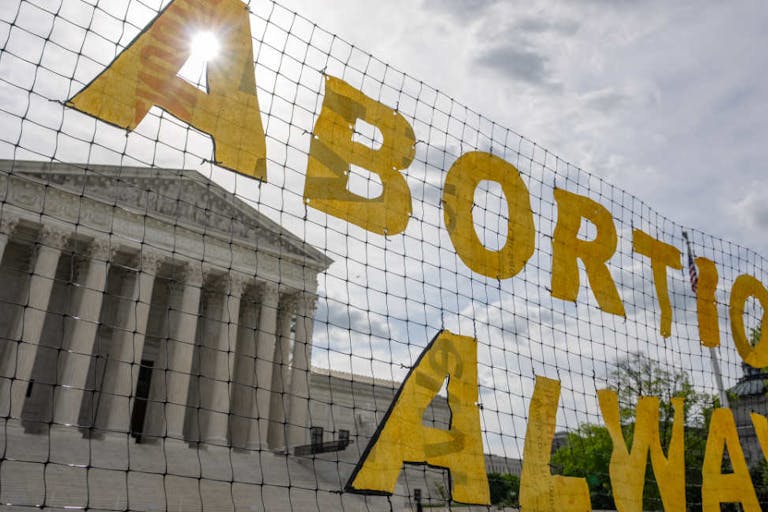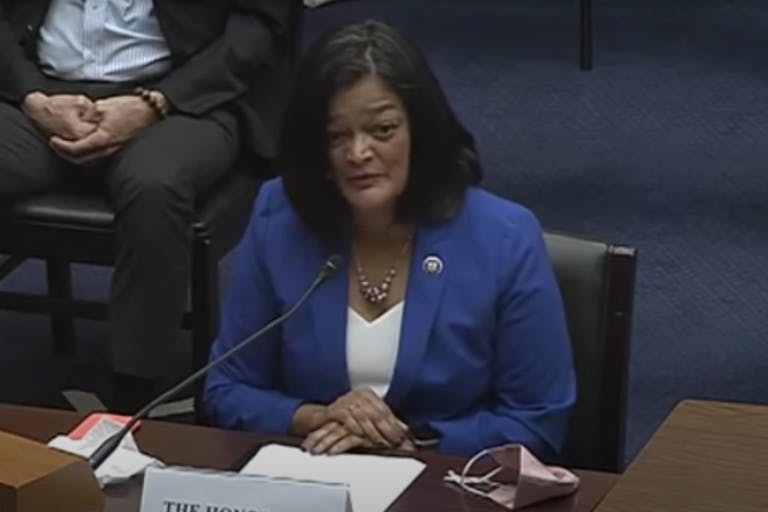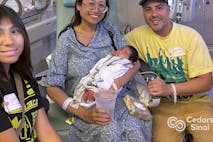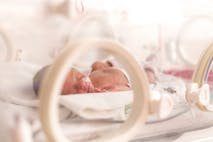
A growing number of Americans call themselves ‘pro-choice’ – but what’s really behind it?
Nancy Flanders
·
Rep. Pramila Jayapal’s abortion story does not demonstrate the ‘urgent need’ for abortion
On September 30, Congresswoman Pramila Jayapal (D-Wash.) joined other Congresswomen to testify in favor of abortion before the House Committee on Oversight and Reform hearing called “A State of Crisis: Examining the Urgent Need to Protect and Expand Abortion Rights and Access.” Jayapal shared two personal stories — one involving the premature birth and health struggles of her first child and one of the abortion of her second child.
“For you to understand how I ultimately decided to have an abortion, I have to start earlier with the birth of my first child, Janak,” she said. Her child Janak was born at just 26 weeks and five days while she was on a two-year fellowship in India. The baby weighed only a pound and 14 ounces. Janak required blood transfusions, was fed drop by drop and the child’s heart had to be restarted several times. The family returned to the U.S. when Janak was three months old.
“In those early, intensely difficult years, Janak had hydroencephalitis (water in the brain), seizures, and repeatedly returned to the emergency room because of life-threatening pneumonia,” she said. “The fact that Janak is a 25-year-old beautiful human being is a true miracle and the greatest gift in my life.”

Jayapal was recovering from surgery herself and said she was dealing with severe postpartum depression and post-traumatic stress disorder which were diagnosed after she considered suicide. Her marriage ended. Soon after, she met a man she would later marry. When she became pregnant, a doctor told her that the pregnancy would be high-risk to her and the baby. Though she had said she wasn’t ready for another child, she said she “very much wanted to have more children, but I simply could not imagine going through that again.”
Jayapal decided to have an abortion, not out of desire, but as a result of fear and previous emotional trauma. Instead of reassuring Jayapal that they would do everything possible to protect the health of her and her baby, the doctors fueled the fears of a woman who was already feeling unprepared for a second child and afraid of another traumatic childbirth experience.
READ: Pro-abortion lawmakers wear white for women’s rights – just not for preborn women
Article continues below
Dear Reader,
Have you ever wanted to share the miracle of human development with little ones? Live Action is proud to present the "Baby Olivia" board book, which presents the content of Live Action's "Baby Olivia" fetal development video in a fun, new format. It's perfect for helping little minds understand the complex and beautiful process of human development in the womb.
Receive our brand new Baby Olivia board book when you give a one-time gift of $30 or more (or begin a new monthly gift of $15 or more).
The idea that abortion is ever medically necessary to save the health or the life of the mother is false. An abortion is the intentional killing of a preborn human being and offers no medical benefit to the mother. Still, the abortion industry takes advantage of the sympathies of good people who don’t want to see women die, and also takes advantage of the women fearfully facing actual or potential pregnancy complications.
“In situations where the mother’s life is truly in jeopardy, her pregnancy must end and her baby must be delivered,” explained neonatologist Kendra Kolb, MD. “These situations occur in cases of mothers who develop dangerously high blood pressure, have decompensating heart disease, life-threatening diabetes, cancer, or a number of other very serious medical conditions.”

READ: Why miscarriage, ectopic pregnancy, and early delivery are not abortions
Kolb explained that some babies may need to be delivered early, but preterm delivery is not an abortion. In some cases, women require a preterm delivery, and tragically, some of their babies do not survive. But thanks to advances in medicine, babies born as young as 21 weeks have a chance of surviving if given proper medical care. Women whose lives are at immediate risk may undergo an emergency C-section, which is safer and faster than a later abortion. A C-section takes less than an hour while a second-trimester D&E abortion can take more than 24 hours to carry out based on the gestational age of the baby; a third-trimester induction abortion takes three or four days to complete, and involves labor and delivery. In a true medical emergency, an abortion would increase the risk of death and serious disability to the mother, said Kolb.
There is also an increased risk of psychological damage to a woman who undergoes an abortion for her own health, explained Kolb. In addition, abortion can increase a woman’s risk of alcohol and drug use, depression, and suicidal thoughts.
Jayapal was threatened with the possibility of a high-risk pregnancy — her life wasn’t at immediate risk. Still, she chose abortion out of fear, not freedom. And this fear is what allows the abortion industry to thrive.
“Like” Live Action News on Facebook for more pro-life news and commentary!
Live Action News is pro-life news and commentary from a pro-life perspective.
Contact editor@liveaction.org for questions, corrections, or if you are seeking permission to reprint any Live Action News content.
Guest Articles: To submit a guest article to Live Action News, email editor@liveaction.org with an attached Word document of 800-1000 words. Please also attach any photos relevant to your submission if applicable. If your submission is accepted for publication, you will be notified within three weeks. Guest articles are not compensated (see our Open License Agreement). Thank you for your interest in Live Action News!

Nancy Flanders
·
Human Interest
Bridget Sielicki
·
Issues
Nancy Flanders
·
International
Angeline Tan
·
Activism
Bridget Sielicki
·
Analysis
Angeline Tan
·
Issues
Nancy Flanders
·
Human Interest
Nancy Flanders
·
Investigative
Nancy Flanders
·
Pop Culture
Nancy Flanders
·
Human Interest
Nancy Flanders
·